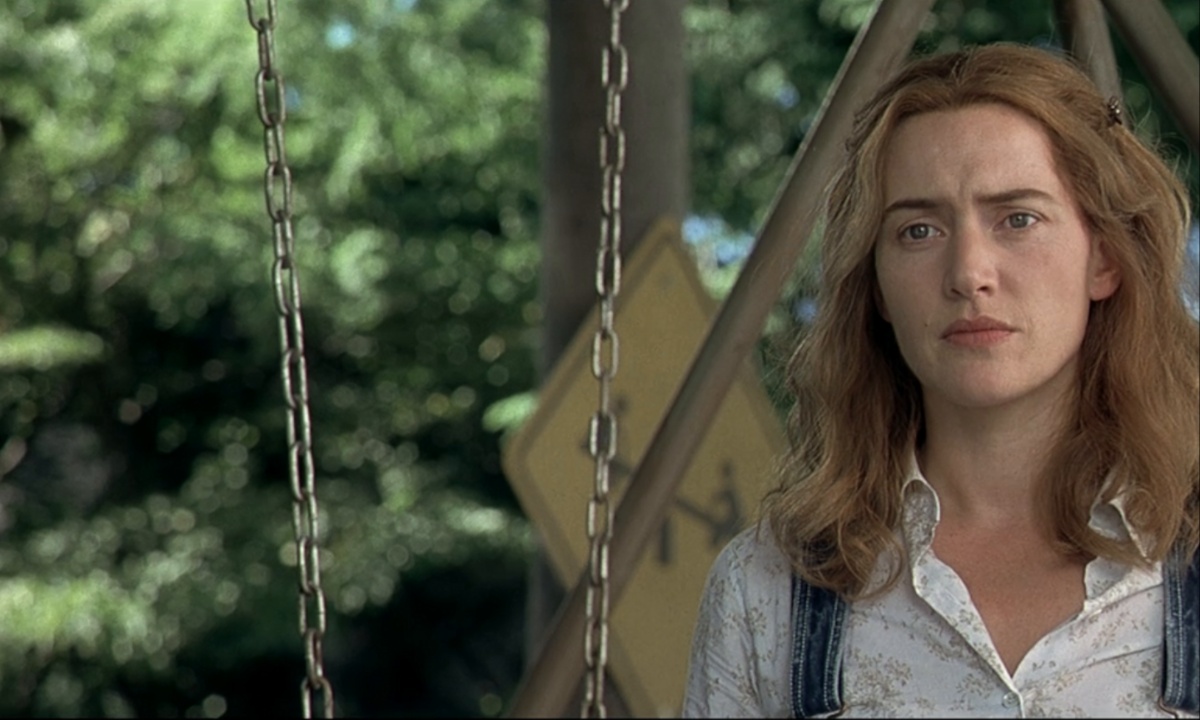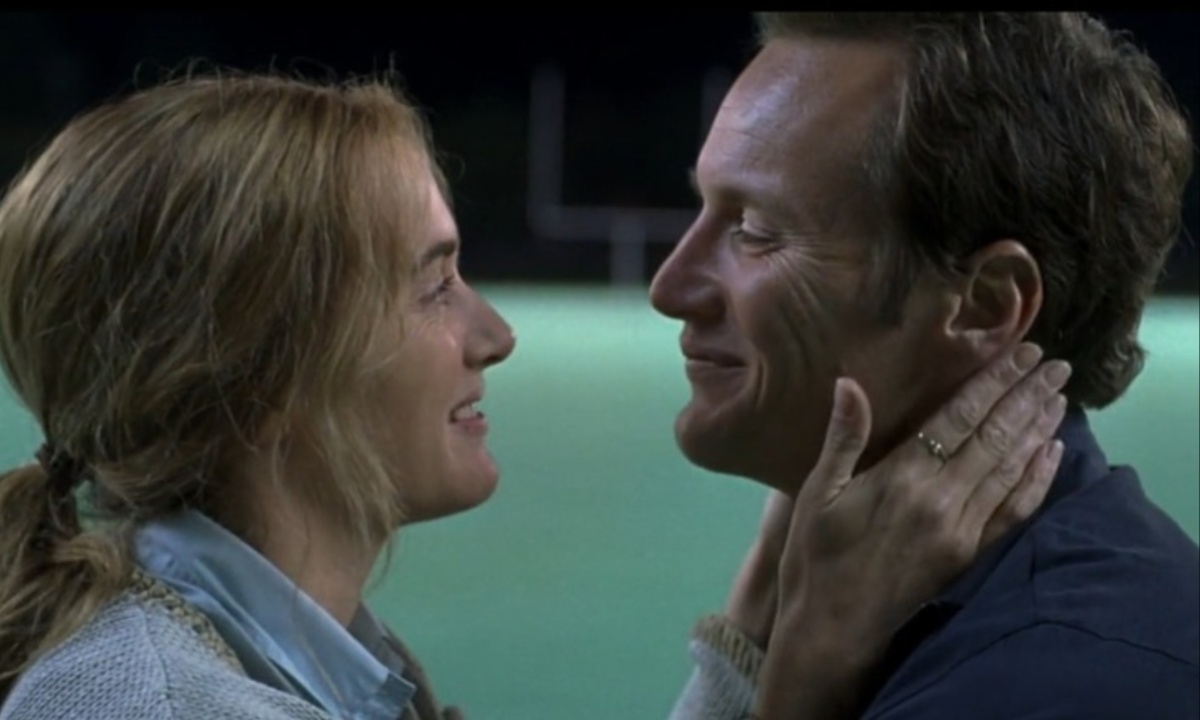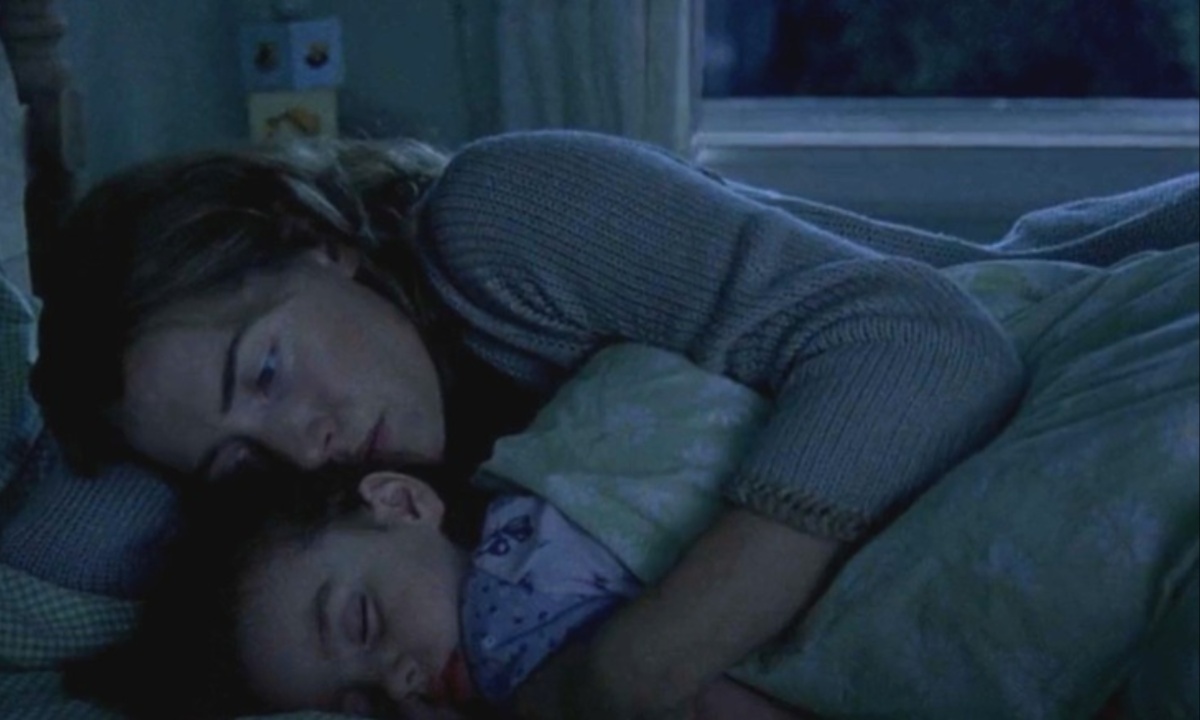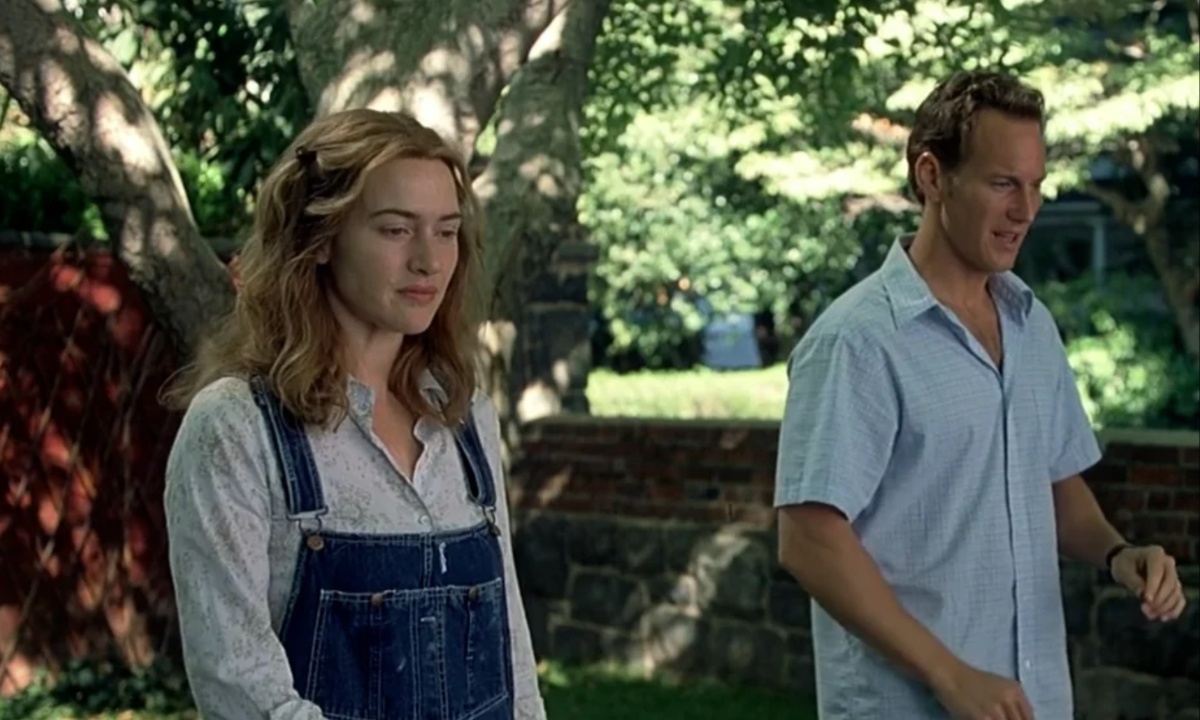Todd Field’s career as a filmmaker has been marked by his ability to explore complex human emotions and relationships. His first feature film, In the Bedroom (2001), received critical acclaim for its nuanced portrayal of grief, and his follow-up, Little Children (2006), deepened his exploration of the emotional undercurrents that shape ordinary lives.
The film, based on Tom Perrotta’s 2004 novel, similarly delves into the lives of suburbanites whose lives are disrupted by internal and external forces. Field’s direction, combined with the performances of a stellar cast, particularly Kate Winslet, brought Little Children to life as a raw and honest examination of the personal battles people fight behind closed doors.
Little Children is set in an affluent suburban community and tells the story of several characters whose seemingly stable lives are unraveled by infidelity, guilt, and personal trauma. At its core, the film is about the hidden struggles of its characters, how their desires, fears, and regrets shape their lives, and how they must confront their pasts and their own self-perceptions.

The Plot of Little Children
The film centers on a small suburban town, where the lives of its residents are more interconnected than they might realize. The main characters include Sarah Pierce (Kate Winslet), a stay-at-home mother who feels disconnected from her husband, Richard (Gregg Edelman), and from the life she imagined for herself; Brad Adamson (Patrick Wilson), a former high school football star who now stays at home with his young child and feels emasculated by his situation; and Ronnie (Jackie Earle Haley), a convicted sex offender who has returned to live with his mother after serving his sentence.
Sarah, who is increasingly dissatisfied with her life as a mother and wife, becomes involved in an affair with Brad. Brad, similarly unhappy with his life as a stay-at-home father, is drawn to Sarah as she provides the attention and escape he feels he needs. At the same time, the news that Ronnie, a sex offender, has moved back into the neighborhood spreads, causing the community to react with fear, suspicion, and judgment. This tense atmosphere forms the backdrop for the characters’ emotional turmoil, as each of them grapples with their own demons.
As Sarah and Brad begin their affair, their lives become intertwined in ways that not only threaten their marriages but also reveal the deeper emotional voids they are both trying to fill. At the same time, Ronnie’s return to the neighborhood brings his own set of complications, particularly as he struggles with his past and attempts to find a place for himself in a community that refuses to forgive him.
The film shifts back and forth between these storylines, depicting the emotional unraveling of its characters as they try to make sense of their desires, regrets, and the consequences of their actions. While Sarah and Brad’s affair is a central plot point, the film also explores the inner turmoil of Larry (Noah Emmerich), a former police officer who, after a traumatic incident, feels disconnected from the world around him. Larry’s obsession with Ronnie and his attempt to assert control over a situation that makes him feel powerless are significant subplots that intersect with the main narrative in surprising ways.

The Climactic Ending of Little Children
The ending of Little Children is a culmination of the emotional and moral conflicts that have been brewing throughout the film. After spending much of the film in a state of emotional disarray, Brad decides to take action. He has already begun an affair with Sarah, but his internal struggle reaches a breaking point when he faces a physical injury that prevents him from meeting Sarah as planned. This injury serves as a metaphorical wake-up call, forcing Brad to reexamine his choices and his priorities.
However, the most poignant and climactic event is Ronnie’s self-inflicted injury. Having suffered tremendous guilt for his past crimes and being unable to bear the weight of judgment from the community, Ronnie goes to extreme lengths to punish himself. In one of the film’s most shocking moments, Ronnie castrates himself in an attempt to atone for his past. The gruesome act of self-mutilation serves as the film’s most extreme depiction of the theme of guilt and redemption, raising the question of whether true atonement is ever possible for someone like Ronnie.
Ronnie’s decision to take such drastic action is a turning point in the film, forcing viewers to reconsider their understanding of his character. While he is initially portrayed as a villain, his vulnerability and emotional distress challenge the audience to think more deeply about the complexity of human behavior and the consequences of past mistakes. The film asks whether redemption is achievable for someone like Ronnie and whether society’s need for retribution can ever be reconciled with an individual’s need for healing.
Meanwhile, Sarah’s decision to return home to her daughter signals her own moment of realization. After encountering Ronnie in the park, Sarah is forced to confront her own fears, doubts, and desires. Although she had been planning to run away with Brad and start a new life, her maternal instincts ultimately pull her back to her daughter. In this moment, Sarah recognizes that her emotional crisis is not just about her marriage or affair but about finding a sense of purpose and fulfillment in her role as a mother.
This moment of self-realization for Sarah suggests that, while her marriage may not be salvageable, her bond with her child offers her a path toward healing and redemption. The film does not offer a definitive answer about Sarah’s future, but it provides her with the clarity she needs to begin the process of emotional healing. Her return to her daughter is a significant choice, one that signals her growth and her ability to confront her own feelings of inadequacy and emotional longing.
Thematic Exploration: Parenthood and Matriarchy
At the heart of Little Children is a profound exploration of parenthood. Specifically, the film delves into the lives of mothers, examining the complex, often contradictory emotions that come with raising children and maintaining a family. Sarah’s struggle as a mother is central to the film’s exploration of identity and personal fulfillment. She is constantly torn between her desire for independence and her sense of responsibility to her child. Sarah’s affair with Brad offers her an escape from her frustrations, but ultimately, it is her daughter who provides her with the clarity she needs.
This theme of motherhood is juxtaposed with the film’s portrayal of Ronnie, a man who has failed in his parental role and is now seeking to atone for his past. While Sarah’s maternal instincts pull her back to her child, Ronnie’s inability to fulfill his role as a responsible adult leads him down a tragic path. These two characters—Sarah and Ronnie—represent opposing sides of the emotional spectrum: Sarah, a mother seeking redemption, and Ronnie, a man who feels he can never be redeemed.
Additionally, the film touches on the theme of the idealization of suburban life. In many ways, Little Children critiques the image of suburban families as perfect and harmonious. The characters in the film lead lives filled with internal conflict and personal struggles, which reflect the complexities and hidden realities of suburban life. In this sense, the film acts as a critique of the myth of the “perfect” family, offering a more nuanced portrayal of the pressures and challenges that come with parenting, marriage, and self-identity.

Judgment, Redemption, and Empathy
One of the most compelling aspects of Little Children is its exploration of judgment and redemption. Throughout the film, characters make choices that are motivated by a desire for validation, escape, or guilt. Sarah and Brad’s affair, for example, is driven by their dissatisfaction with their lives, but it also exposes their deeper emotional needs. The film challenges viewers to question their judgments of the characters, especially Ronnie, who is initially perceived as a villain but is revealed to be a deeply conflicted and remorseful individual.
The theme of empathy is also central to the film. Sarah’s decision to approach Ronnie in the park, despite her initial fear and judgment, marks a turning point in her character arc. Her ability to empathize with Ronnie and understand his pain reflects her own emotional growth and self-awareness. Similarly, Larry’s attempts to harass Ronnie are driven by his own guilt and need for control, but by the end of the film, he, too, is forced to confront his own actions and seek redemption through understanding rather than vengeance.
Little Children ultimately asks whether true redemption is possible for its characters. While some find a sense of clarity or closure, others, like Ronnie, are left to struggle with their past actions. The film suggests that redemption is not always about achieving a moral high ground but about confronting one’s flaws, recognizing one’s responsibility, and finding a way to move forward.
In the end, Little Children is a powerful meditation on the complexities of human nature, the struggles of parenthood, and the quest for meaning in a world filled with judgment and uncertainty. Todd Field’s direction, combined with a standout performance by Kate Winslet, brings the characters’ emotional journeys to life, making the film an emotionally charged experience for the viewer. The open-ended conclusion allows for multiple interpretations, leaving audiences to reflect on the characters’ futures and the themes of empathy, guilt, and redemption that permeate the film.
Through its unflinching examination of suburban life and the hidden emotional lives of its characters, Little Children remains a film that challenges its audience to reconsider societal norms and judgments. Its legacy lies in its ability to provoke thought and reflection, making it a timeless exploration of the human condition.



